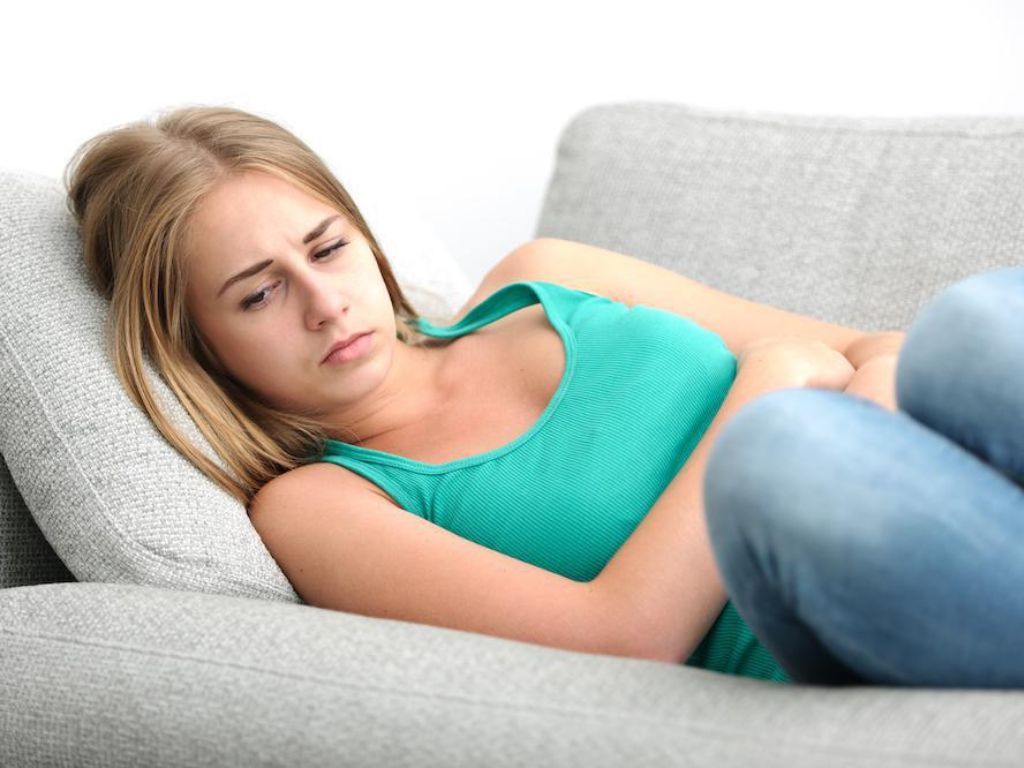
When many women have their periods, they frequently encounter heavy flows and painful cramps. Periods where you cannot perform routine tasks are not typical. The menstrual cycle and flow are unique to each woman. It could be challenging to determine whether your period is regular, light, or heavy without consulting your doctor. A woman typically loses 30 to 40 milliliters (mL) of blood during a period. Women who experience Heavy Menstruation Bleeding could lose as much as 80 ML.
Menorrhagia, a condition where women suffer unusually heavy menstrual flow, may be present. Because of this condition, you must replace your tampon or pad every hour. More than six or seven tampons each day are also acceptable. This disorder may cause anemia and painful cramps. You can also pass blood clots more prominent than a quarter during your period.
The best way to determine whether your period is abnormally heavy is to speak with your doctor because it is impractical to measure your total blood loss.
Heavy periods can result from a variety of circumstances or problems. These heavy periods could be intermittent or happen regularly.
An unexpectedly heavy one-month period | Heavy Menstruation Bleeding
Ectopic pregnancy
It’s possible to mistake the signs and symptoms of ectopic pregnancy for a heavy period.
This kind of pregnancy doesn’t last since it develops outside your uterus. It may result from serious health problems, including extensive bleeding and excruciating cramping. Ectopic pregnancy poses a severe threat to life if untreated.
Miscarriage | Heavy Menstruation Bleeding
Heavy bleeding is frequent during and immediately after a miscarriage and might be mistaken for an exceptionally heavy period.
An intrauterine device without hormones (IUD)
The side effect of heavy menstrual bleeding is frequent.
Reputable source for an IUD without hormones. With your IUD in place for a few months, you could notice that the bleeding gets less intense.
Medications
Blood thinners can cause irregular menstrual cycles and poor blood flow.
Also Read – How to Get Pregnant Fast | Tips to Help You Conceive
A period that’s heavy on the first day | Heavy Menstruation Bleeding
On the first day of their period, many women bleed more heavily; on the final days, they bleed less. Unusual is a strong flow that could obstruct your regular routines.
Birth control changes
Your period may start out particularly heavy as your cycle adjusts to the hormone changes if you recently stopped taking hormonal birth control.
Medication alterations
Your drugs may affect your cycle and cause heavy bleeding on the first day of your period, just like birth control.
A recurring period that’s heavy and painful
If your periods are always uncomfortable, painful, and challenging to manage, you might be dealing with underlying, chronic problems.
Hormone Issue
Progesterone and estrogen, the two hormones most strongly influence menstruation, are generally in balance in your body. A thicker uterine lining, however, might result from excess estrogen. Due to the lining being shed during your period, this may result in excessive bleeding. Hypothyroidism, an underactive thyroid gland, can result in severe or erratic menstrual flow.
Bleeding Condition | Heavy Menstruation Bleeding
The prevalence of a bleeding issue, such as von Willebrand disease, is between 10 and 30 percent in women who have heavy periods. It may be difficult to stop your bleeding if you have certain illnesses.
Uterine polyps
Periods may become heavier due to these little growths on the uterine lining.
Uterine tumors | Heavy Menstruation Bleeding
Fibroids are non-cancerous expansions of the uterine muscle. They may form inside the uterine wall, on the exterior of the uterus, protrude into the cavity, or do a combination of these.
Specific Cancers
Heavy bleeding rarely results from cancer in your uterus, cervix, or ovaries, but it may be a symptom.
Perimenopause
You can have hormonal shifts and unusually severe menstrual bleeding at this phase before menopause.
Postpartum Recovery | Heavy Menstruation Bleeding
It’s usual to get heavy periods after giving birth. These modifications can be long-lasting, or your period might resume its pre-pregnancy course.
Adenomyosis
Endometrial tissue can invade the uterine muscles, leading to a condition known as adenomyosis, which thickens the uterine wall and increases pain and bleeding.
PCOS
A hormonal imbalance characterizes PCOS, a prevalent health issue. Women with this illness may have irregular menstrual cycles, heavier periods, or no periods.
Endometriosis
In endometriosis, the tissue resembling endometrial tissue develops outside the uterine cavity. These signs include:
difficult times
a lower back ache
severe bleeding during the period
When to visit the doctor | Heavy Menstruation Bleeding
Consult your doctor if the bleeding is so severe that you must change a pad or tampon every hour.
Similarly, it’s time to contact your doctor if your period makes it difficult for you to engage in usual activities due to pain, cramping, and excessive bleeding.
When you see them, your doctor might:
Do a physical examination, ask about your medical history, and ask that your symptoms be noted.
They might request a biopsy or imaging testing to examine your uterus more thoroughly.
Without the assistance of your doctor, it can be challenging to determine whether your period is regular or heavy. They will assist you in determining whether an underlying problem is the cause of your heavy periods.
Frequently Asked Question
Ans. Heavy bleeding is defined as the need to replace your tampon or pad in less than two hours or the passage of clots at least the size of a quarter. You should consult a physician if you experience this kind of bleeding. You may not be able to live your life to the fullest if heavy or protracted bleeding is left untreated. Anemia may also result from it.
Ans. Eating spinach, salmon, apple cider vinegar, and blackstrap molasses will help reduce heavy menstrual flow. Drink plenty of water and cinnamon and ginger teas. Use an ice compress. Avoid consuming caffeine and alcohol.
Ans. Periods typically span 4 to 6 days, with days with large flow volume and days with less flow volume. Determining the average number of pads used each day takes time and effort. Per period, using one to seven typical-sized pads or tampons is typical.
Ans. During your period, you can carry on with your regular activities without getting blood on your clothes or bed sheets by using pads, tampons, period underwear, and cups. You can use period underwear instead of regular underwear on the days you get your period. Tampons and cups go inside your vagina. Pads are worn in your underwear.




[…] Also Read – Heavy Menstruation Bleeding | What Causes Such Heavy Periods? […]
[…] Read More -: Heavy Menstruation Bleeding | What Causes Such Heavy Periods? […]
[…] Also Read – Heavy Menstruation Bleeding | What Causes Such Heavy Periods? […]